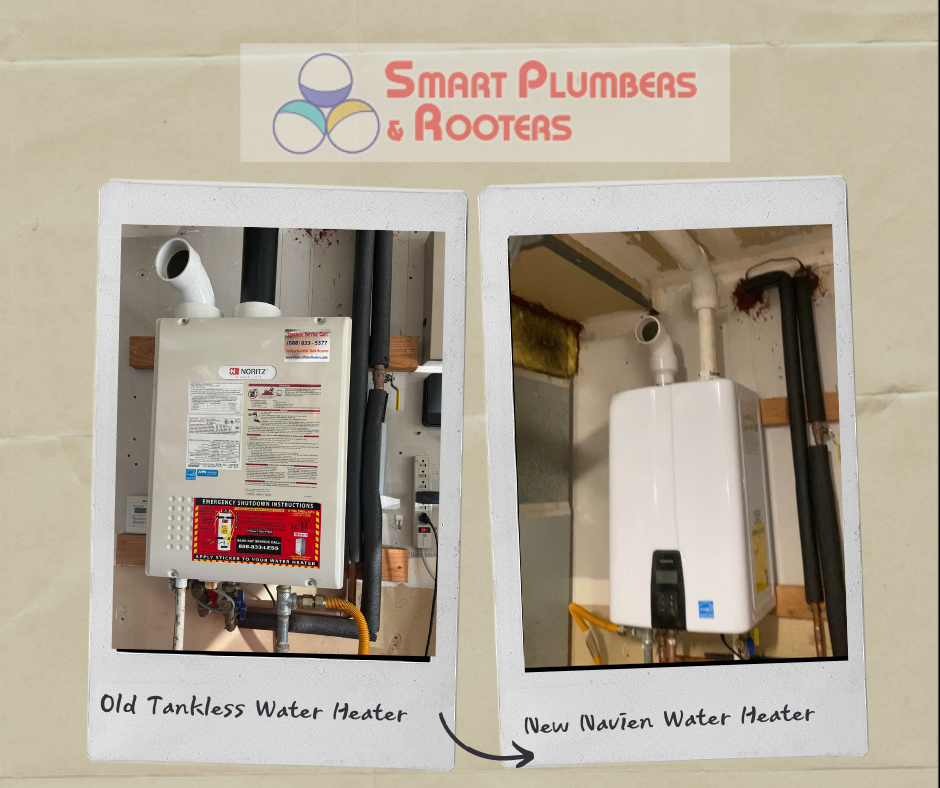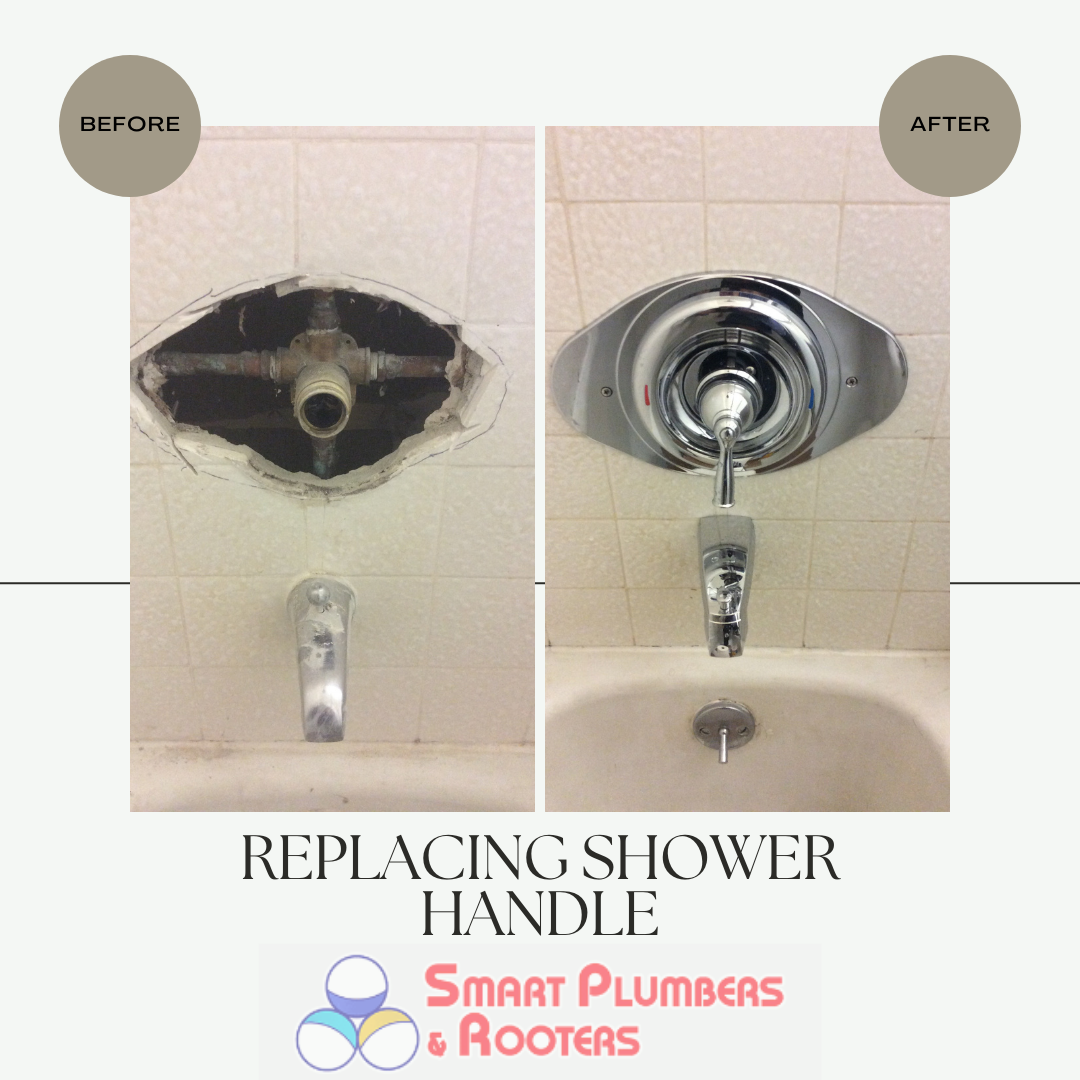Tankless water heaters have revolutionized how we access hot water in our homes. These systems are known for their energy efficiency, space-saving design, and long lifespan. However, like any appliance, they don't last forever. Replacing an old tankless water heater is a crucial decision that can impact your comfort, energy bills, and overall home efficiency. In this guide, Smart Plumbers will walk you through everything you need to know about replacing your old tankless water heater.
Understanding When It's Time to Replace Your Tankless Water Heater
1. Signs of a Failing Water Heater
One of the most important aspects of maintaining a comfortable home is ensuring that your water heater is functioning correctly. Here are some signs that indicate it might be time to replace your tankless water heater:
- Inconsistent Water Temperature: If your water heater no longer provides a consistent temperature, it may be a sign of a failing unit.
- Reduced Water Flow: A decrease in water pressure could indicate a buildup of mineral deposits, which affects the efficiency of your heater.
- Unusual Noises: Strange sounds like banging or hissing can be a sign that your heater is on its last legs.
- Visible Wear and Tear: Any signs of corrosion, rust, or leaking around the unit should not be ignored.
2. Age of the Unit
Tankless water heaters typically last between 10 to 15 years. If your unit is approaching or has exceeded this age, it’s time to start considering a replacement, even if it's still functioning. Upgrading to a new model can offer improved energy efficiency and advanced features that older models lack.
Benefits of Replacing Your Old Tankless Water Heater
3. Enhanced Energy Efficiency
Modern tankless water heaters are far more energy-efficient than their predecessors. Newer models are designed to reduce standby heat loss, leading to significant savings on your energy bills. By replacing your old unit, you can enjoy lower operational costs and reduce your carbon footprint.
4. Improved Water Heating Technology
Advancements in technology have made newer tankless water heaters more reliable and efficient. Many of the latest models include features such as:
- Wi-Fi Connectivity: Allowing you to monitor and control your heater remotely.
- Advanced Flow Control: Ensuring a constant supply of hot water even with varying water pressure.
- Enhanced Safety Features: Including better protection against overheating and scalding.
5. Space-Saving Design
While tankless water heaters are already known for their compact size, newer models are even more streamlined. This can free up additional space in your home, giving you more flexibility in how you use your utility areas.
Steps to Replace Your Old Tankless Water Heater
6. Assessing Your Needs
Before purchasing a new tankless water heater, it's crucial to evaluate your household’s hot water needs. Consider factors such as:
- Number of Occupants: A larger household may require a higher-capacity unit.
- Simultaneous Water Usage: If your family often uses hot water at the same time (e.g., multiple showers), you’ll need a unit with a higher flow rate.
- Fuel Type: Decide whether you want to stick with your current energy source (natural gas, propane, or electric) or switch to a more efficient option.
7. Choosing the Right Model
When selecting a replacement, consider the following:
- Energy Efficiency Rating: Look for models with high energy factor (EF) ratings.
- Brand Reputation: Stick with reputable brands known for their reliability and customer service.
- Warranty: Ensure the model you choose comes with a comprehensive warranty to protect your investment.
8. Professional Installation
While some homeowners may feel confident in their DIY skills, replacing a tankless water heater is a job best left to professionals. Here’s why:
- Safety Concerns: Handling gas lines, electrical connections, and venting systems require specialized knowledge to avoid potential hazards.
- Efficiency: A professional installation ensures your new unit operates at peak efficiency.
- Code Compliance: Licensed plumbers are familiar with local building codes and can ensure your installation meets all necessary regulations.
Cost Considerations for Replacing a Tankless Water Heater
9. Initial Purchase Price
Tankless water heaters can be more expensive upfront than traditional tank models. However, the long-term energy savings often offset the initial cost. Prices for a new tankless water heater typically range from $500 to $2,500, depending on the size and features.
10. Installation Costs
Professional installation costs vary based on factors such as:
- Complexity of the Installation: Replacing an existing tankless unit is usually straightforward, but installing a tankless system for the first time can involve additional work.
- Location of the Heater: Hard-to-reach places or units that require extensive venting may increase labor costs.
- Upgrading Infrastructure: If your home’s gas or electrical systems need upgrading to accommodate the new heater, this will add to the overall cost.
On average, you can expect to pay between $1,000 and $3,000 for installation.
11. Long-Term Savings
Despite the higher upfront costs, a new tankless water heater can save you money in the long run. Energy-efficient models can reduce your water heating bills by 20-30%, and their longer lifespan means you won’t need to replace them as frequently as traditional tanks.
Maintenance Tips to Extend the Life of Your New Water Heater
12. Regular Descaling
Mineral buildup is one of the main issues that can reduce the efficiency of a tankless water heater. To prevent this, it’s important to descale your unit at least once a year, especially if you live in an area with hard water.
13. Annual Inspections
Scheduling annual inspections with a licensed plumber can help catch any potential issues before they become major problems. A professional can check for leaks, test the water pressure, and ensure the unit’s heating elements are working correctly.
14. Flush the System
Flushing the system removes accumulated sediment and mineral deposits. This process should be done every 6-12 months to maintain the efficiency of your heater.
Why Choose Smart Plumbers for Your Water Heater Replacement?
15. Expertise and Experience
Smart Plumbers has been serving the community for years, offering top-notch plumbing services and expert advice. Our team is fully trained and certified to handle all types of tankless water heater installations and replacements.
16. Customer-Centered Approach
We pride ourselves on providing excellent customer service. From the initial consultation to the final installation, our goal is to make the replacement process as smooth and stress-free as possible.
17. Competitive Pricing
We understand that replacing a water heater is a significant investment. That's why we offer competitive pricing and financing options to make the process more affordable for our customers.
18. Comprehensive Warranty
All our installations come with a comprehensive warranty, giving you peace of mind that your new tankless water heater will serve you well for years to come.
FAQs
Q1: How long does it take to replace a tankless water heater?
The replacement process typically takes 3 to 5 hours, depending on the complexity of the installation and any additional work required.
Q2: Can I replace my tankless water heater myself?
While it's possible, it’s not recommended unless you have extensive plumbing and electrical experience. Professional installation ensures safety and efficiency.
Q3: What is the average lifespan of a new tankless water heater?
A well-maintained tankless water heater can last up to 20 years.
Q4: Will a new tankless water heater increase my home's value?
Yes, upgrading to a modern, energy-efficient water heater can increase your home's value and appeal to potential buyers.
Q5: Do tankless water heaters require a lot of maintenance?
They require less maintenance than traditional tank heaters but still need regular descaling and annual inspections.
Q6: What happens if I ignore the signs that my water heater needs to be replaced?
Ignoring the signs can lead to complete system failure, leaving you without hot water and potentially causing water damage to your home.
Replacing your old tankless water heater is a significant decision, but with the right guidance and professional support from Smart Plumbers, you can ensure a smooth transition to a more efficient, reliable system. Whether you're dealing with fluctuating water temperatures or simply want to upgrade to a newer model, the benefits of replacement far outweigh the costs. Trust Smart Plumbers to provide the expertise and quality service you need to make the most out of your investment.




Leave a comment
This site is protected by hCaptcha and the hCaptcha Privacy Policy and Terms of Service apply.